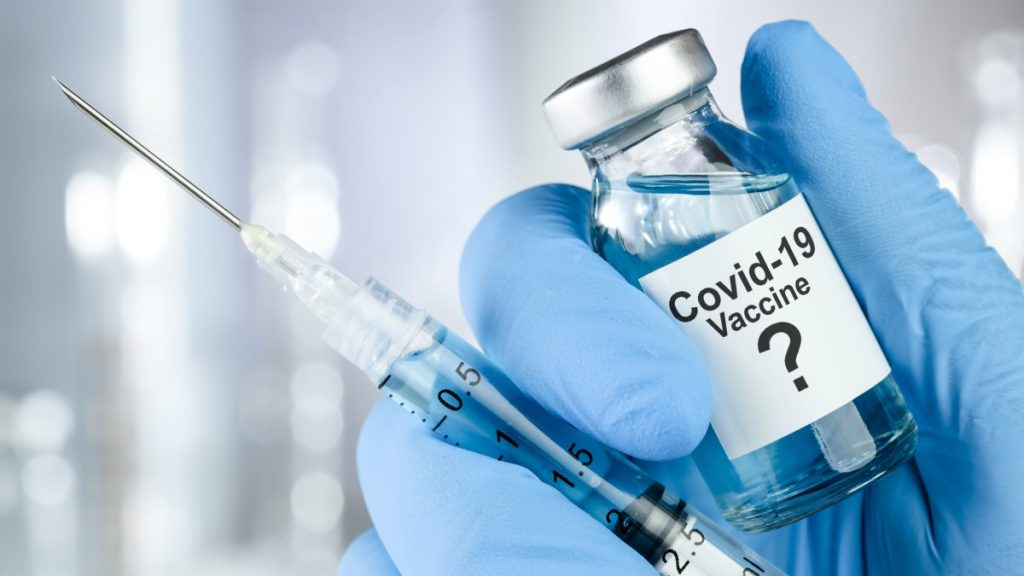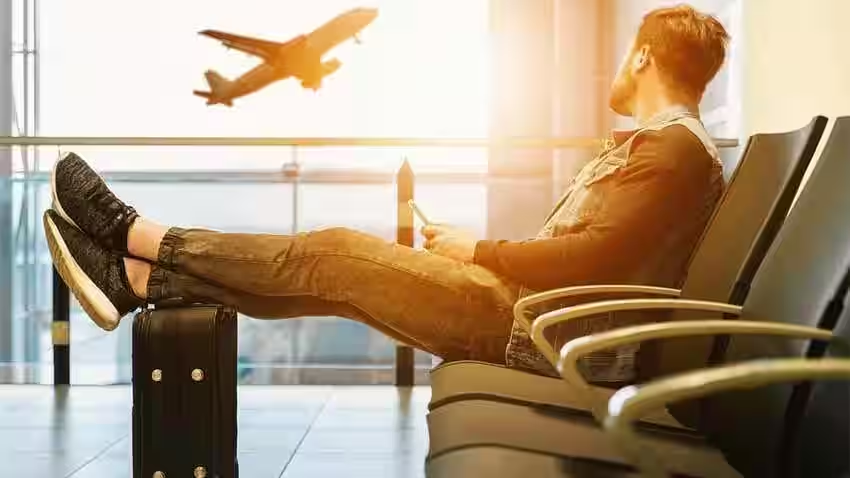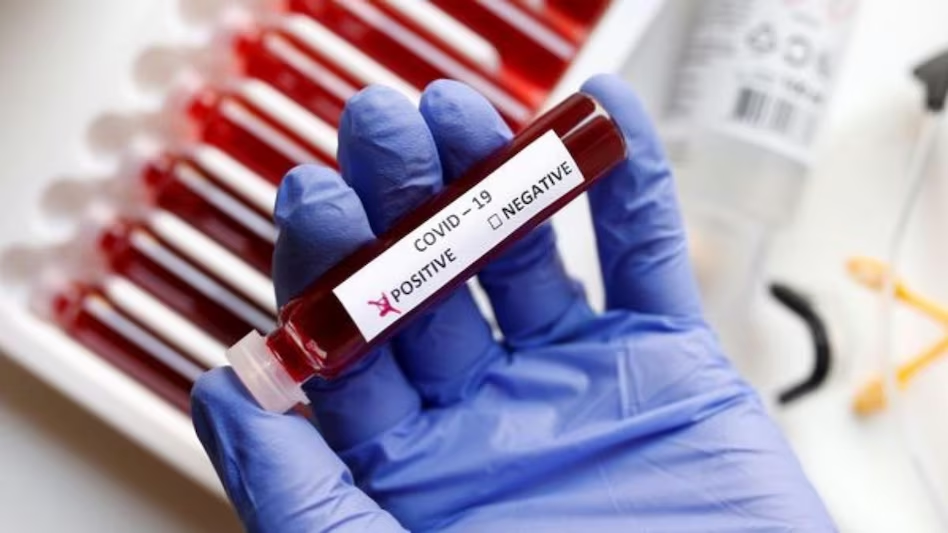India removes COVID-19 testing requirement for fully vaccinated travelers
India has recently made a significant move by ending the COVID-19 testing mandate for fully vaccinated travellers. This decision reflects a positive step toward easing travel restrictions and promoting safe international travel. If you want to travel to India, you will need an Indian visa.

Update in COVID-19 Guidelines for International Visitors
The Union Health Ministry has announced a significant change in COVID-19 guidelines for international visitors. Starting at midnight on July 20, the previous requirement of conducting random RT-PCR tests on a two percent subset of international travellers will be removed. This adjustment aims to simplify the entry process for international travellers and aligns with the Ministry's ongoing efforts to adapt pandemic-related measures to the evolving situation.
Decision to Relax COVID-19 Guidelines for International Visitors
The decision to relax COVID-19 guidelines for international visitors by the Union Health Ministry is a well-considered response to the evolving global COVID-19 landscape. Here's a more detailed elaboration on the key aspects of this decision:
- Global Vaccination Progress
Vaccines have been a critical tool in combating the spread of COVID-19, and the Ministry has acknowledged the remarkable strides taken in this regard. Mass vaccination efforts across many countries have resulted in a significant portion of the global population becoming vaccinated, which, in turn, has contributed to reducing the transmission of the virus.
- Balancing Vigilance and Recovery
The relaxation of guidelines is not a signal of complacency but rather a calibrated response to the evolving situation. It's an acknowledgement that, alongside vaccination, other safety measures and public health strategies continue to be crucial in managing COVID-19.
- International Travel Facilitation
Removing the requirement for random RT-PCR testing of a two percent subset of international travellers simplifies their entry process. This is not only convenient for travellers but also has the potential to encourage tourism and international business, contributing to economic recovery.
- Broader Community Impact
By streamlining entry procedures for travellers who are fully vaccinated, the risk of importing new cases of COVID-19 is mitigated, especially if strict vaccination verification and documentation procedures are in place. This helps safeguard the health of the local population.
- Adaptation to Changing Circumstances
Importantly, this decision underscores the Ministry's commitment to adapt to changing circumstances. The pandemic has demonstrated its ability to evolve, with the emergence of new variants and fluctuations in infection rates. By revising guidelines based on current data and global vaccination trends, the Ministry remains responsive to the dynamic nature of the pandemic.
Streamlining International Travel Protocols: Revised COVID-19 Guidelines
The move to streamline international travel protocols through revised COVID-19 guidelines represents a significant step in adapting to the ongoing challenges posed by the pandemic. This decision is essential for several reasons, and here's an elaboration on the key aspects:

- Efficiency and Convenience for Travelers
The revision of COVID-19 guidelines simplifies the entry process for international travellers. By removing the previous mandate testing, the journey becomes more convenient and less time-consuming. Travellers can anticipate smoother arrivals, reducing stress and uncertainty associated with testing requirements.
- Economic Implications
Tourism and international business travel are vital contributors to many economies. By making travel more accessible and hassle-free, countries can potentially stimulate economic recovery by attracting more tourists and business travellers. This, in turn, can lead to increased economic activity, job creation, and revenue generation.
- Global Connectivity
As countries adopt more consistent and straightforward entry requirements, it becomes easier for people to travel between nations. Improved global connectivity can foster cultural exchange, business partnerships, and international cooperation, all of which are critical for global progress and development.
- Public Health Considerations
The revision of guidelines should not compromise safety. To maintain public health, countries may continue to require proof of vaccination, health declarations, or other preventive measures to ensure that travellers do not pose a risk of spreading COVID-19.
- Adaptation to Changing Conditions
The ongoing nature of the pandemic necessitates flexibility in travel protocols. As the COVID-19 situation evolves, countries must continually reassess and adapt their guidelines. New variants, fluctuations in infection rates, and changes in vaccination coverage require a responsive approach to protect public health while facilitating international travel.
Updated COVID-19 Guidelines for International Travelers
The Union Health Ministry's decision to update COVID-19 guidelines for international travellers has been carefully considered in light of the current global COVID-19 situation and the remarkable progress in global vaccination coverage. This adjustment aims to simplify the entry process for international visitors, ensuring a smoother travel experience.

Significant Relaxation in COVID-19 Guidelines for International Visitors
The significant relaxation in COVID-19 guidelines for international visitors is a noteworthy development that carries several implications and considerations. Let's elaborate on the key aspects of this relaxation:
- Improved Travel Experience
By eliminating the previous requirement for random RT-PCR testing of a two percent subset of travellers, the entry process becomes less cumbersome. Travellers can now expect quicker and more straightforward entry into their destination country, reducing travel-related stress and uncertainty.
- Boost to Tourism and Hospitality Industries
The eased guidelines can have a positive impact on the tourism and hospitality sectors, which have been severely affected by the pandemic. The simplified entry process is likely to make the destination more attractive to tourists, potentially leading to an uptick in tourism-related activities, job creation, and revenue generation for the local economy.
- Economic Implications
Beyond the tourism industry, this relaxation can have broader economic implications. Facilitating international travel can stimulate trade, business interactions, and investment opportunities. It promotes economic recovery not only through tourism but also by fostering international business relationships and collaborations.
- Adaptation to Changing Circumstances
The decision reflects the adaptability of health authorities and governments in responding to changing circumstances. The pandemic landscape continues to evolve, with new variants emerging and vaccination campaigns progressing. Relaxing guidelines is a response to the improving situation and a recognition of the importance of adapting measures accordingly.
- Enhancing Global Connectivity
The simplification of travel protocols contributes to enhancing global connectivity. It fosters international exchange, cultural interactions, and trade relationships. A well-connected world is vital for global cooperation, economic growth, and addressing international challenges.
- Monitoring and Reevaluation
Health authorities will likely closely monitor the impact of these relaxed guidelines. If there are any concerning developments, such as a resurgence of cases or new variants, adjustments to the guidelines may be necessary to ensure continued public safety.
Comprehensive Evaluation Leads to Easing of COVID-19 Guidelines
The Union Health Ministry's decision to ease COVID-19 guidelines for international visitors follows a comprehensive evaluation of the current global coronavirus situation. This assessment has highlighted the remarkable progress achieved in vaccination coverage across the world, contributing to increased confidence in managing the pandemic.
Consequently, the Ministry has chosen to eliminate the previous requirement for random RT-PCR testing of a two percent subset of international travellers. This decision reflects the Ministry's commitment to maintaining effective safety measures while acknowledging the significant strides made in the global fight against COVID-19.
FAQS
Who does this policy change apply to?
This policy change applies to fully vaccinated travellers, meaning individuals who have received the recommended doses of a COVID-19 vaccine.
Are there any specific vaccines that are accepted for this policy change?
India typically accepts a range of WHO-approved COVID-19 vaccines. It's advisable to check with the authorities for the latest updates on accepted vaccines.
Do travellers still need to follow other safety measures, such as quarantine or mask-wearing?
While the testing mandate has been lifted for fully vaccinated travellers, other safety measures, such as quarantine requirements and mask-wearing, may still be in place depending on the destination and local regulations. Travellers should stay informed about these additional requirements.
Will this policy change remain in effect indefinitely?
The duration of this policy change may depend on the evolving COVID-19 situation. It's essential to stay updated with the latest travel advisories and guidelines from the authorities.
What documents or proof of vaccination do travellers need to provide?
Travellers should carry their vaccination certificates or other relevant documents as proof of their vaccination status. Specific requirements may vary, so it's advisable to check with the authorities for the latest documentation requirements.